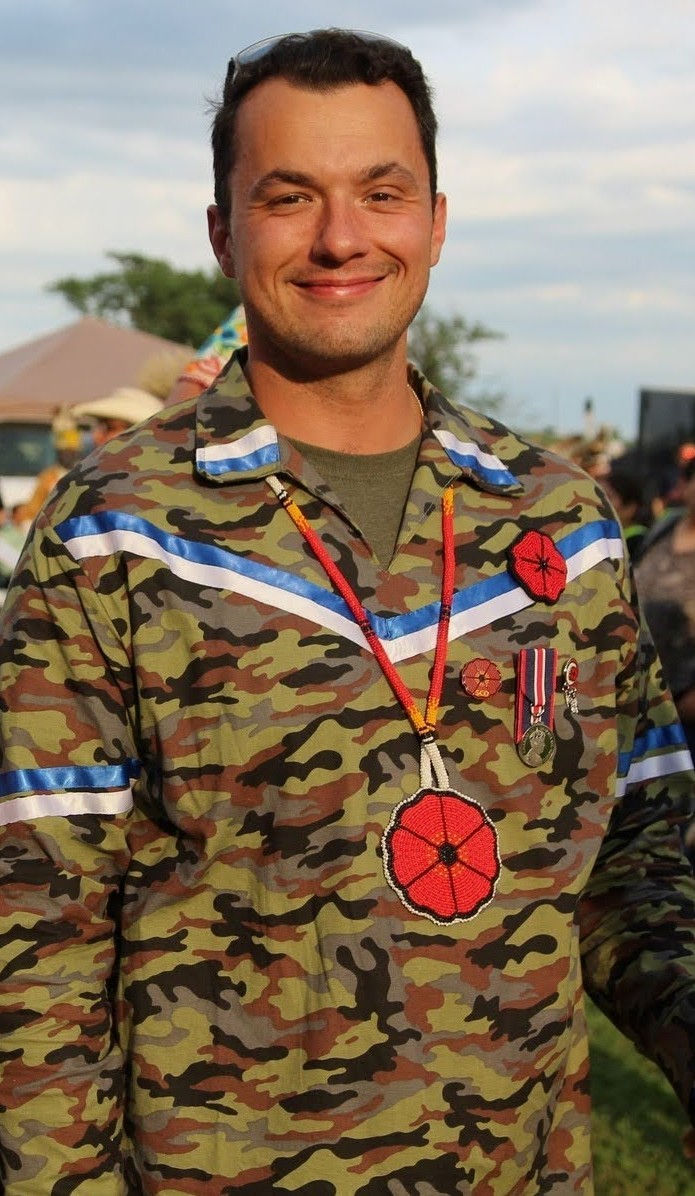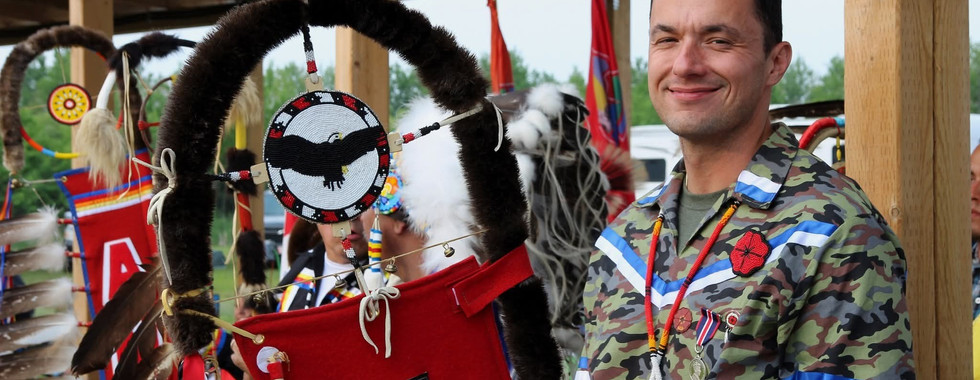Honour to their memory - Justin Woodcock acknowledges Indigenous Veterans and the fight for justice
- Nov 7, 2025
- 3 min read
By Martin Zeilig

Every November 11, as Canadians gather to honour those who served, Indigenous Veterans Day and Remembrance Day offer a moment not just of reflection, but of reckoning.
For Justin Woodcock, Program Manager of the First Nations Veterans Program at the Southern Chiefs Organization, the days leading up to Remembrance Day carry profound weight — not only as a former soldier, but as a relentless advocate for First Nation veterans whose sacrifices have long gone unrecognized.

Woodcock will be speaking at the Indigenous Veterans Day ceremony on Higgins Avenue, attending the main Remembrance Day event at RBC, and joining a Knights of Columbus gathering with Grand Chief Jerry Daniels. His presence is more than ceremonial — it’s a call to remember the complicated history of Indigenous military service in Canada.
“Many of our veterans fought for democracy overseas, only to return home to a country where they couldn’t vote,” Woodcock says. “They fought for freedom they themselves didn’t have when they came home.”

That truth is what drives his work. A veteran of nearly a decade in the Canadian Armed Forces, Woodcock served five years with Lord Strathcona’s Horse and three more as a combat systems engineer aboard HMCS Regina. Born in Winnipeg and raised in the northern community of O-Pipon-Na-Piwin Cree Nation, he returned home after his service with a new mission.
“I started losing friends to PTSD and substance misuse,” he recalls. “It lit a spark in me.”
That spark led him to a military mental health unit — not to seek help, but to ask a question that would change his life: “I want your seat. How do I get in your chair?”
Inspired by his mother, a social worker, Woodcock pursued a degree in social work at the University of Manitoba. Today, he runs the First Nation Veteran Program — the first of its kind in Canada. Grounded in the medicine wheel, the program supports veterans across spiritual, emotional, physical, and mental well-being. Services include help with veteran affairs claims, cultural healing workshops like sweat lodge ceremonies and hand drum making, and monthly events that foster community and resilience.

But Woodcock’s work goes beyond support — it’s about systemic change. He’s been a vocal advocate for policy reform, especially around access to traditional healing.
“If a veteran wants to see a traditional healer, none of it is covered,” he explains. “Transportation, sacred medicines, honoraria — they pay out of pocket. But if they go to a hospital downtown, everything’s covered. That’s not right.”
He’s taken this message to the federal level, meeting with the Honourable Jill McKnight, Minister of Veterans Affairs, and working alongside provincial allies like MLA David Pancratz. Together, they championed Bill 210, which recently passed third reading and is set to receive royal assent. The bill will make Indigenous Veterans Day a permanently observed day in Manitoba — a landmark recognition of a history too often overlooked.

Woodcock is passionate about educating Canadians on why Indigenous Veterans Day exists.
“It’s about honouring the unique and painful history of First Nation military service,” he says.
From being forced to give up treaty status to enlist, to being denied benefits like land grants upon return, Indigenous veterans faced systemic discrimination.
“They couldn’t go back to the reserve, and they didn’t have support in the city,” he emphasizes. “They fell through the cracks.”
He cites the story of Tommy Prince, one of Canada’s most decorated Indigenous soldiers, who had to attempt enlistment three times due to racial barriers. “Can you imagine the loss if someone like Tommy Prince hadn’t been allowed to serve?”
The modern origins of Indigenous Veterans Day stem from a 1991 incident when First Nation veterans were barred from placing a wreath at the National Remembrance Day Ceremony in Ottawa.
“They were told to wait until the end,” Woodcock recounts. “So they created their own day. That’s powerful.”
He also highlights the story of Francis Pegahmagabow, the most effective sniper of World War I with over 330 confirmed kills.
“He returned home and became a chief. That’s the spirit of service we carry — not just in battle, but in leadership.”
Woodcock’s work continues in rural communities, where he often hears, “There are no veterans left.” But he knows better.
“There are Afghanistan veterans living there. Veterans from the ’90s. But people’s image of a veteran is stuck in World War II and Korea.”
His final message is clear: “I hope Canadians take a moment to reflect on the complicated but important history of Indigenous soldiers. They fought for freedom they themselves didn’t have when they came home. That’s something we must never forget.”
Honour to their memory.


.png)













